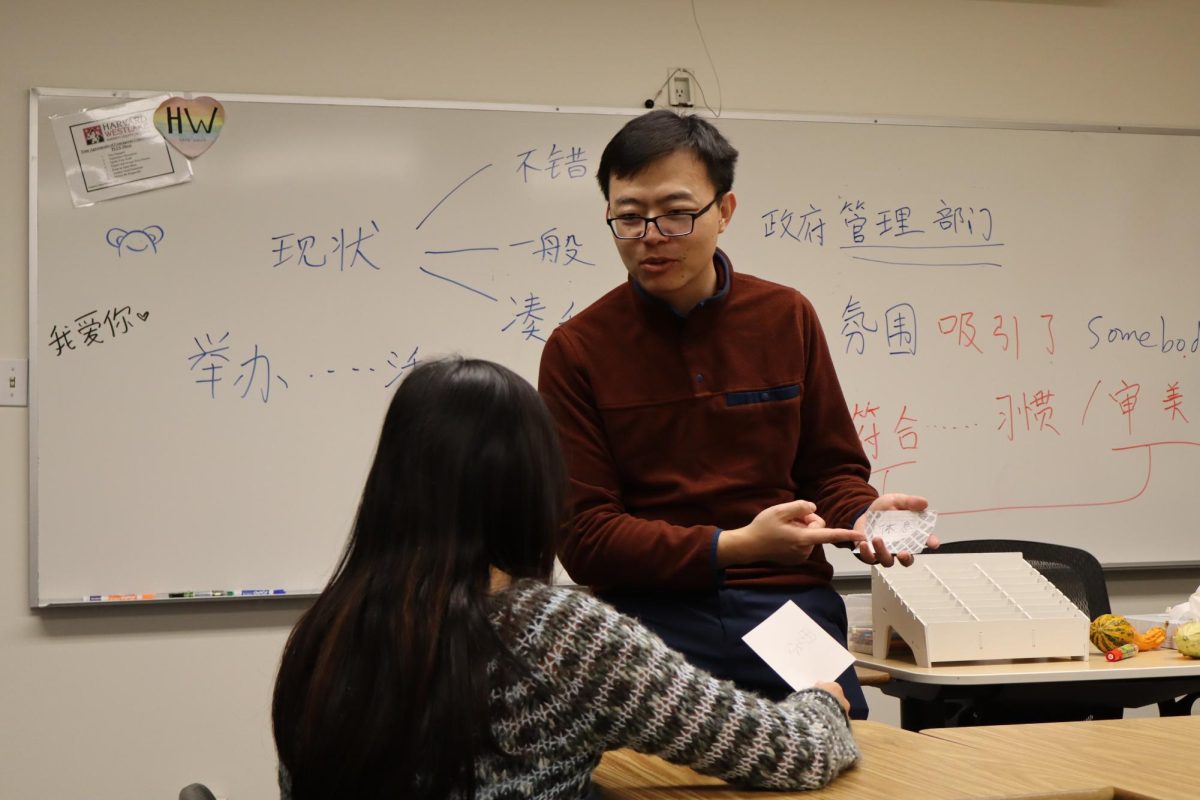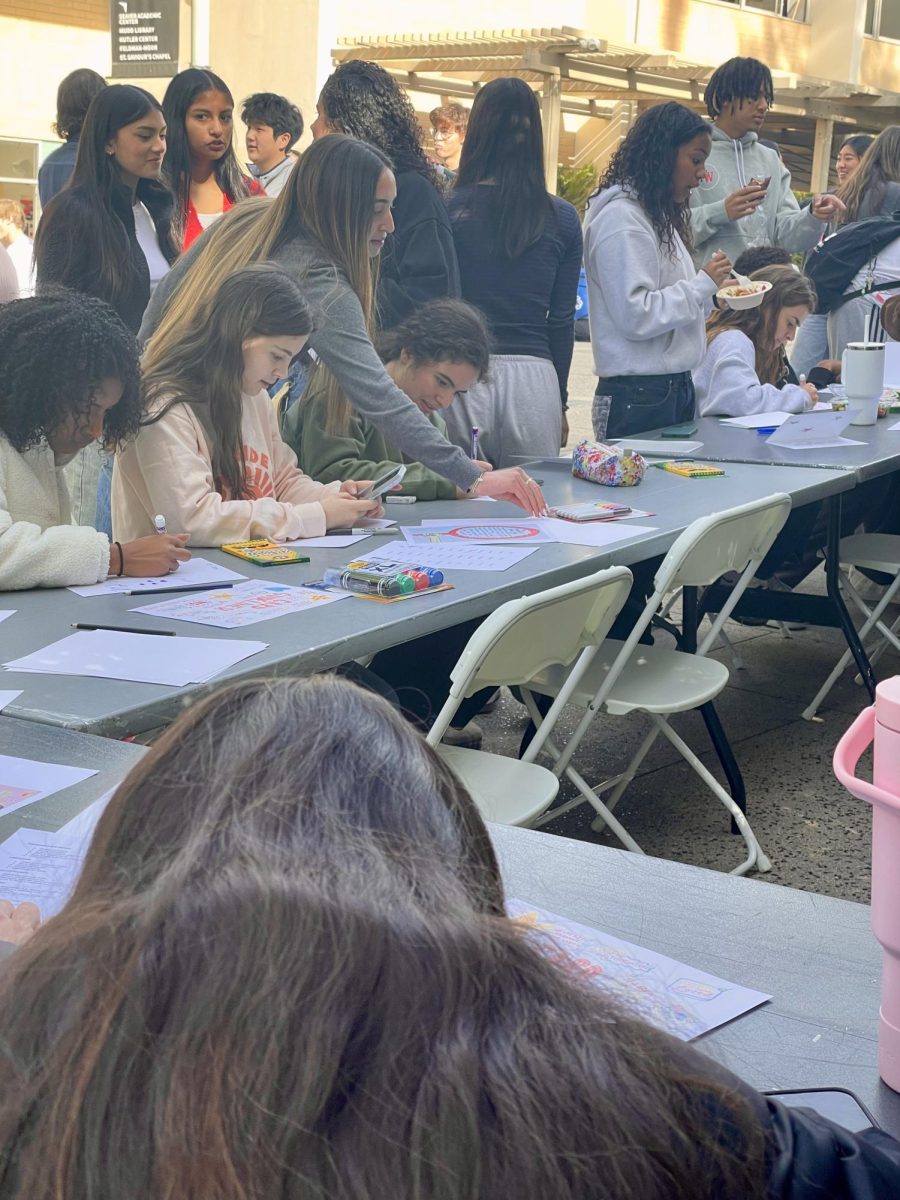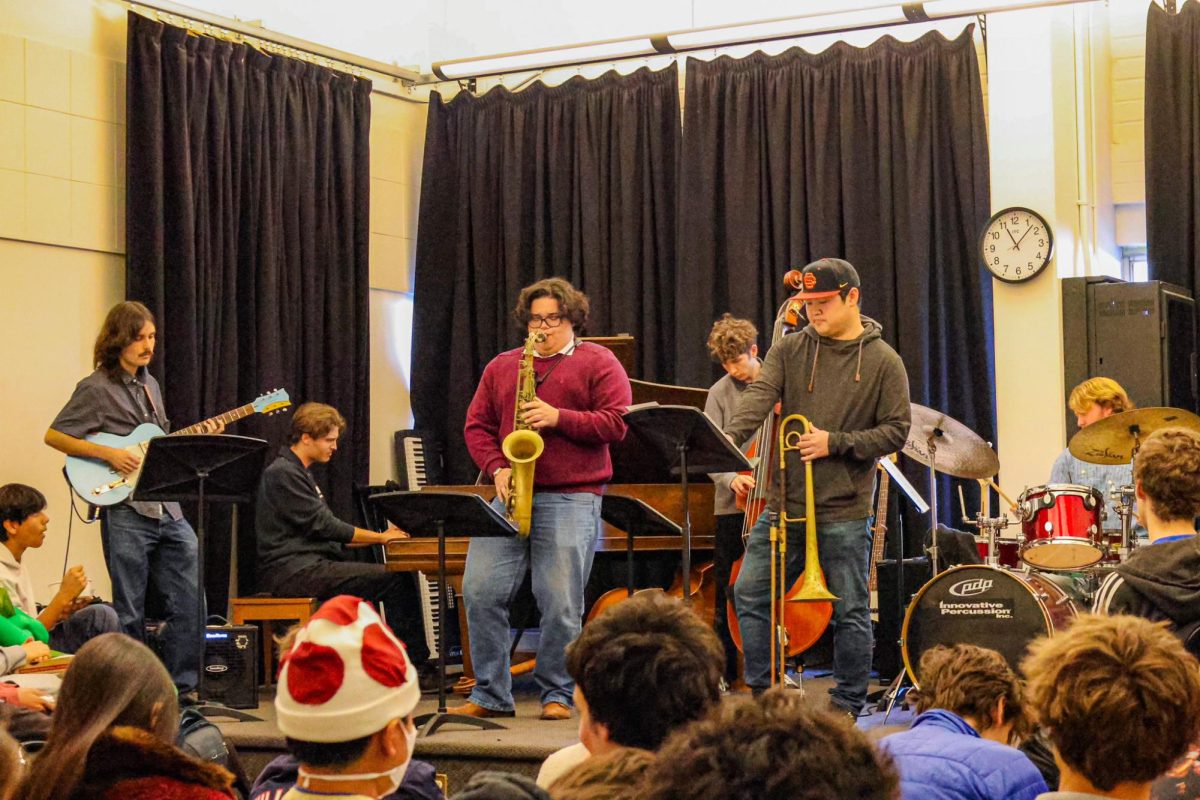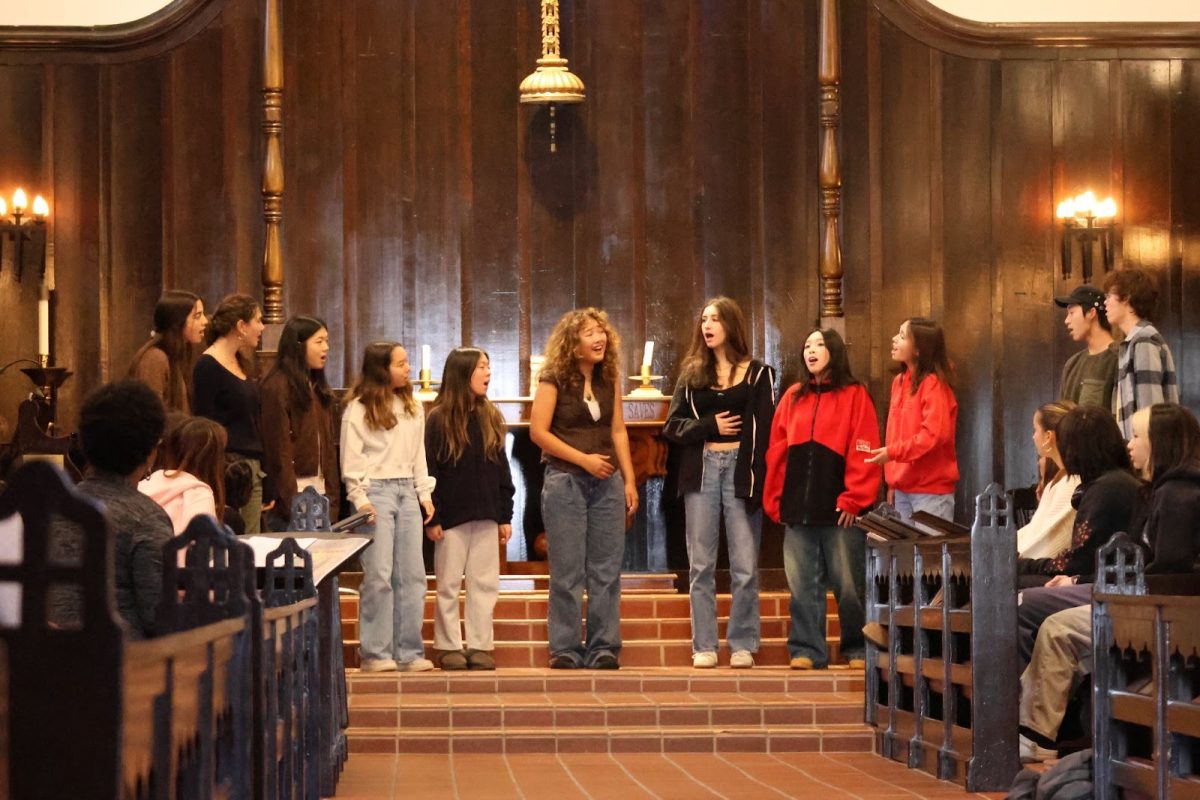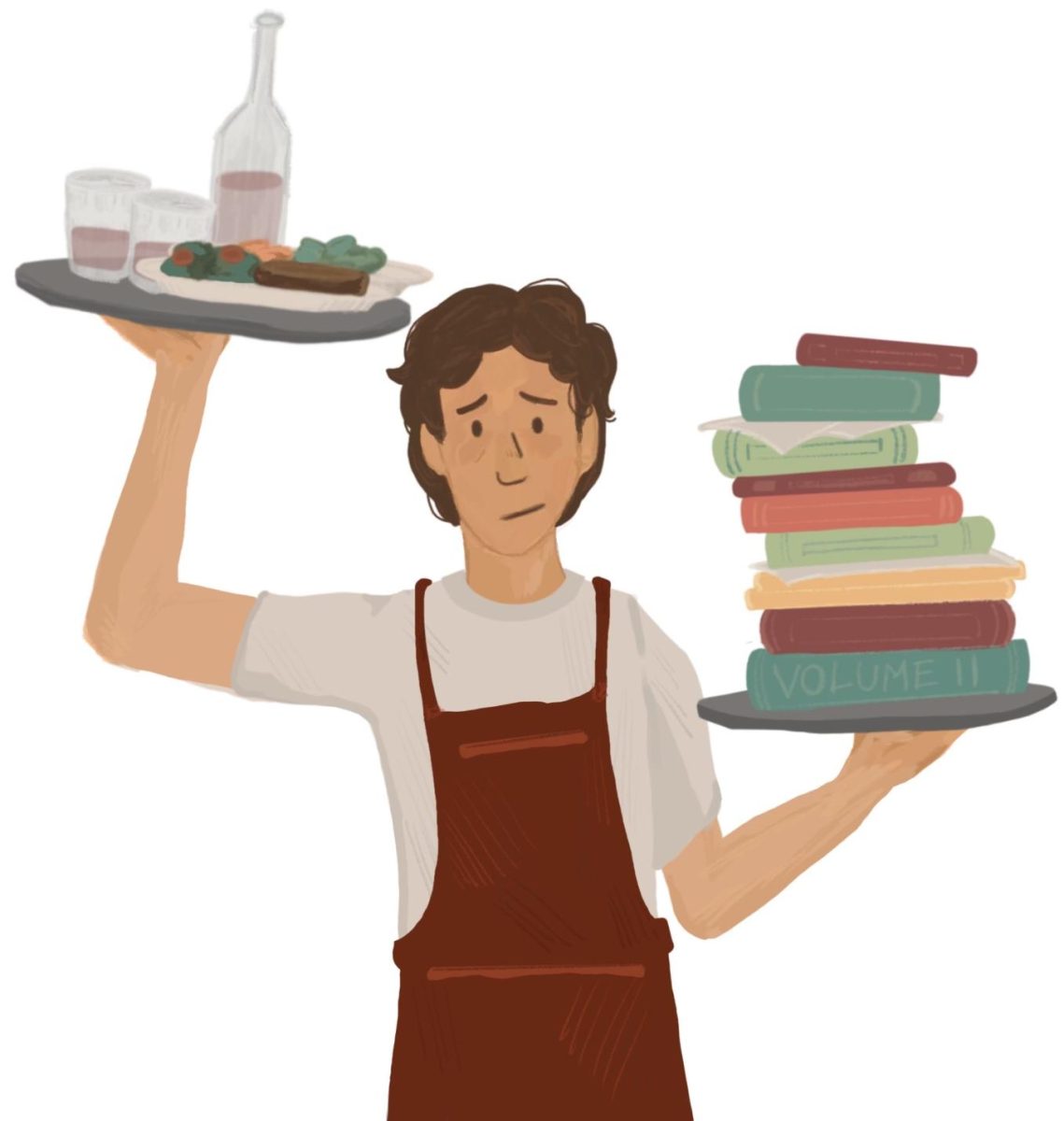A boarding call for a red-eye flight to Indonesia blares loudly over the speakers in Terminal 3 of the Los Angeles International Airport as Imogen Ramlie ’26 takes a seat at her gate. She mentally prepares herself for the 21-hour flight to her father’s home in Jakarta, Indonesia. It is the day before Thanksgiving, and Ramlie is going to see her dad during her week off from school. Ramlie will only be in Jakarta for two-and-a-half days before flying back for the start of school.
Ramlie said that she enjoys the holiday season more since her parents split up because the celebrations are less chaotic.
“I don’t get to see my dad that often, so that part is always really nice,” Ramlie said. “Also, [I like] the fact that it’s not a lot of people during Christmas and Thanksgiving [at my dad’s house]. It’s only a couple of us, which I like. When [my parents] were still together and both their families came for the holidays, it was really hectic. Something would always go wrong.”
Though many students enjoy spending time with their families over the holidays, for many teens with divorced parents, the holidays can be a stressful season.
Maya Karsh ’25, whose parents are divorced, said that although she spends most holidays with her mom, she feels a pressure to keep both of her parents happy when it comes to gift-giving.
“I always feel like I’m betraying one of my parents when I get the other one a gift,” Karsh said. “There shouldn’t be any tension there, but it’s really hard to plan that sort of stuff. Obviously I want to ask one parent what to get the other since they are someone who knows them well, but I can’t do that because it becomes awkward.”
Parents should be proactive about determining their plans for dividing time during holidays to avoid confusion and potential conflict, according to Talking Parents, a co-parenting communication service. Families with divorced parents may choose to split their time in variety of ways. Popular ways of splitting the holiday season among divorced parents are alternating holidays every year, splitting the day in half or assigning certain holidays to certain parents.
Sasha Weinstock’s ’26 parents have been divorced for five years and live on opposite sides of town. Over the holidays, Weinstock said she typically divides individual days between her parents and feels guilty leaving one parent’s home for the other’s.
“Usually, I spend nights and big dinners with my dad’s side of the family and I do lunches and early morning stuff with my mom’s side,” Weinstock said. “They usually like to split up the day and [my siblings and I] will travel from house to house during the actual holiday. Sometimes, I feel pretty guilty because my dad’s [holiday] events are a lot bigger than my mom’s and I feel bad that she isn’t invited. If I put myself in her shoes, I’d feel left out but at the same time, it would be awkward for them to be in the same place.”
Before her parents’ divorce, Weinstock celebrated a traditional Christmas with her entire family. Weinstock said she now participates in different traditions for each household as a result of her parents’ divorce.
“My dad, being Jewish, doesn’t really want to celebrate Christmas at his house anymore so he doesn’t get a tree or anything else,” Weinstock said. “My mom does get a tree and we just have a small dinner with the two of us unless my siblings are home from college.”
41% of divorced couples with children reported having a friendly and cooperative co-parenting relationship, according to a study surveying 400 couples in Psychology Today, a mental health and behavioral science publication. Friendly co-parenting relationships can allow for more opportunities for joint holiday celebrations.
Quinn Hamilton ’26 said that his parents choose to spend holidays together despite having been separated for many years.
“My parents are friendly enough with each other, so if there is a holiday, my dad comes over to my mom’s house,” Hamilton said. “They got divorced right after I was born, so I wouldn’t really remember a time when they were together and I’ve never experienced a holiday with them married.”
Weinstock said that despite the challenges that a split holiday can lead to, her family has come to embrace their new situation.
“I think we’ve come to an understanding that we won’t be spending the holidays together,” Weinstock said. “Maybe in the future we could be together, but not now because it’s not a situation where things can be talked out. We all understand that it’s more of a time heals all situation.”
80% of children with divorced parents adjust well to their non-traditional family situation and show no lasting negative effects on social performance, schoolwork or mental health, according to research by psychologist Constance Ahrons published in her book, We’re Still Family. Conversely, the holiday season can bring about stress for children of divorce, according to Psychology Today. Though it is typically a joyful time of year, many students with divorced parents feel dread around the holidays.
Head of Upper School Counseling Michelle Bracken said students with divorced parents typically feel more burdened than other students during this time because they are faced with challenging demands for their time between both parents. Some students, she said, may try to avoid conflict with parents and feel responsible for keeping the peace between them, which can be overwhelming and a source of stress. Bracken said students with divorced parents may have more feelings of anxiety during the holidays.
Karsh said her holidays are different from her friends’ because she cannot relate to the traditional holiday experience.
“Other people tend to do larger things with their big families for [holidays],” Karsh said. “I think my family is a lot more low-key because I have a smaller and more unconventional family. Since it’s less of a nuclear family, that [dynamic] changes.”
Bracken said it is normal to compare your experiences to those of other people around you.
“I think that we all look around at what others are doing,” Bracken said. “It is difficult to hear friends talk about the holidays with family and friends that seem perfect. Most families are not perfect and are in fact doing the best that they can. I think it is fair to say that if you look hard enough you can find someone who is better off than you and someone who is worse off than you. Accepting your family situation may be far from perfect and being grateful for what we do have, allows us to be happy for our friends who seem to have the perfect family holidays and celebrate with them, even if our family situation is not ideal.”

